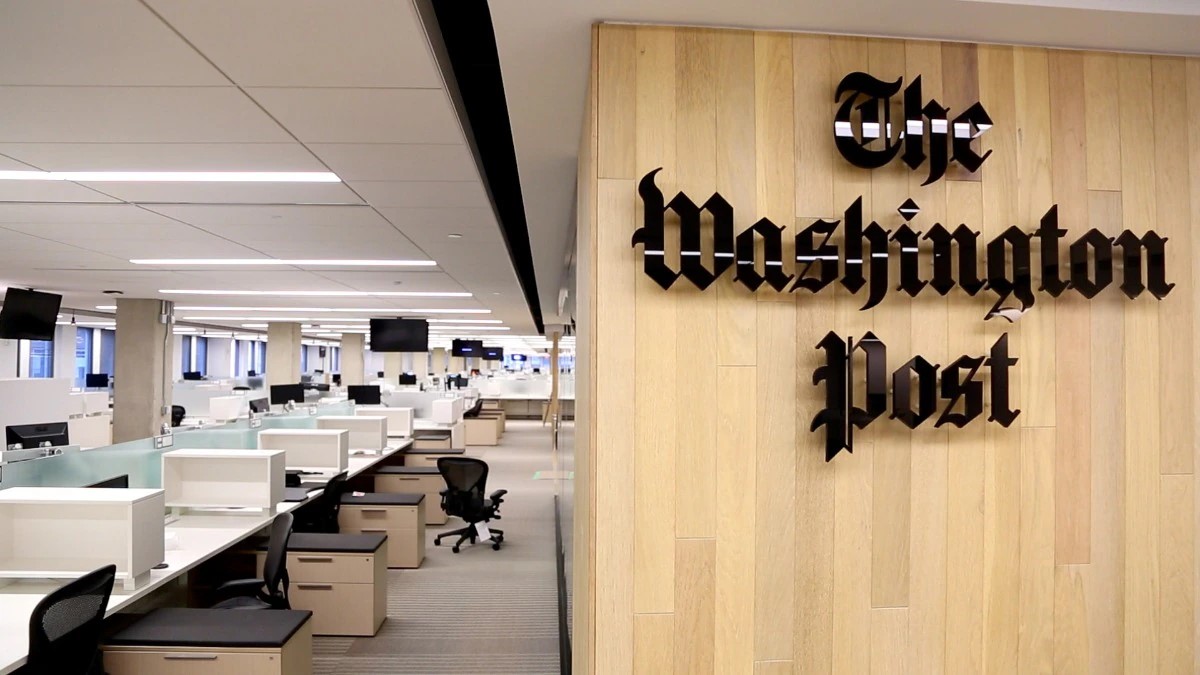New York, NY — In an unprecedented wave of cancellations, over 250,000 Washington Post subscribers have terminated their memberships after the paper announced its decision to forgo endorsing a candidate in the upcoming presidential race. The decision, communicated last Friday by publisher Will Lewis, deviated from the Washington Post’s long-standing tradition and has since ignited intense backlash from readers and prominent former staffers alike. The publication has already lost around 10% of its digital subscribers, a number that could potentially continue rising.
According to internal sources and documents reviewed by the Post, the subscription loss figures were confirmed by Tuesday evening, though it remains unclear if new subscriptions or re-subscriptions could mitigate the impact. NPR first reported this figure, though the Post itself has yet to officially comment on the developments.
The endorsement announcement came less than two weeks before Election Day, a critical period when readers look to trusted publications for political guidance. The swift reaction to the decision reflects the intense political climate as readers expressed anger and disappointment across social media. High-profile figures and even former staff members began sharing their subscription cancellation confirmations on various platforms, with many labeling the move “craven” and “cowardly.” Among those voicing criticism was former Washington Post executive editor Marty Baron, who openly denounced the decision as an abandonment of the Post’s editorial duty, hinting that it may serve as a means for billionaire owner Jeff Bezos to avoid conflicts with a possible second Trump administration.
In addition, sources close to the editorial team disclosed that an endorsement draft for Vice President Kamala Harris had already been prepared before it was reportedly quashed by Bezos himself. This move mirrors recent events at the Los Angeles Times, where an endorsement for Harris was also scrapped by the paper’s billionaire owner, leading to its own internal conflicts and backlash.
Bill Grueskin, a journalism professor at Columbia University, offered insights on the broader implications of these editorial decisions, noting, “The timing here suggests an aversion to the possibility of retribution from a Trump administration.” He further speculated that if the Post or the Times had simply published endorsements, even toned-down versions, the reaction likely would have been less explosive. Instead, by withholding support, they inadvertently spotlighted their absence of endorsement.
Former President Donald Trump, currently campaigning in North Carolina, quickly seized upon the opportunity, characterizing the blocked endorsements as a tacit admission by these newspapers of his appeal. Speaking to a crowd on Wednesday, Trump claimed, “The Washington Post and the Los Angeles Times – they’re not endorsing anyone because they know they only back Democrats. So, they’re admitting that this Democrat is no good, and they think I’m doing a great job.” These comments have only served to amplify the controversy surrounding the endorsement decision.
In response to the growing public outcry, three members of the Washington Post’s editorial board tendered their resignations. Jeff Bezos, in an attempt to address the backlash, took the unusual step of publishing an op-ed addressing the issue. In this piece, Bezos expressed regret over the timing of the decision, stating, “I wish we had made this change earlier, away from the heightened emotions surrounding the election. Our timing was poor and has led to unwarranted assumptions.” He also acknowledged the perception of a potential conflict of interest given his ownership of Amazon and Blue Origin, both of which hold significant federal contracts.
The op-ed came after another wave of speculation was fueled by Bezos’s recent private conversation with Trump. Earlier this summer, in the wake of a failed assassination attempt on Trump, Bezos reportedly commended the former president for his resilience. This interaction raised further questions about the motives behind the endorsement decision, particularly after Trump’s subsequent meeting with Blue Origin executives. Bezos was quick to clarify that he had no prior knowledge of Trump’s meeting, stating emphatically, “No quid pro quo of any kind is at work here. Neither campaign nor candidate was informed or consulted regarding this decision. It was made solely based on editorial independence.”
In his op-ed, Bezos argued that the decision to discontinue presidential endorsements was made with a focus on objectivity, explaining that endorsements can give the “perception of bias” and compromise a paper’s credibility. “Ending them is a principled decision,” he wrote, underscoring his view that trust in media requires distancing from partisan commitments.
However, some media analysts believe that the absence of a presidential endorsement could negatively impact the Washington Post’s financial health. Grueskin pointed out that while the estimated loss of 250,000 subscribers may be minor for Bezos, it still represents a significant dip in revenue and readership for the publication. Grueskin warned, “This is a serious hit to the Post’s business model, which was already navigating a difficult landscape.” He further noted that the backlash could have long-lasting repercussions, branding it “the most misguided move by a media mogul since the days of Tronc.”
In light of the current developments, the Washington Post and its leadership face a complex challenge: balancing editorial independence while maintaining reader trust and loyalty in an era where partisanship is often unavoidable in media. The paper now stands at a crossroads, as the subscriber loss signals that readers expect more than neutrality — they want clarity, especially in the face of one of the most polarizing elections in recent history.







